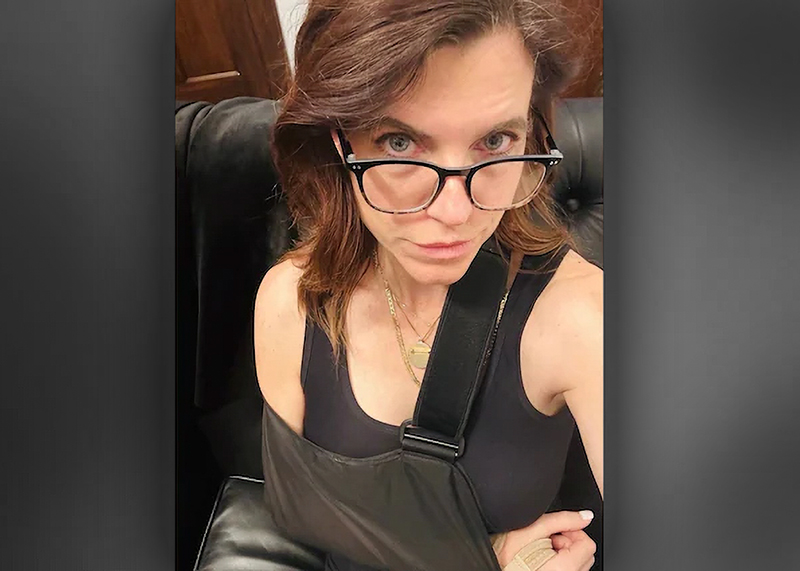Mistrial in Murder Case of Gay Mississippi Student
A judge was forced to declare a mistrial in the case of a man accused of murdering a gay Ole Miss student in 2022.

A judge declared a mistrial in the case of a Mississippi man accused of murdering gay University of Mississippi (“Ole Miss”) student, Jimmy “Jay” Lee.
Lee is believed to be dead but a body has never been found.
The mistrial was declared by Third Judicial Circuit Judge Kelly Luther after a jury deadlocked three separate times — following nine-and-a-half hours of deliberation — on whether 24-year-old Sheldon “Timothy” Herrington, Jr. was guilty of capital murder in the 2022 killing of Lee.
Mississippi law defines capital murder as a killing committed along with another felony — in this case, kidnapping.
Prosecutors previously said they would seek a sentence of life in prison if Herrington were convicted. But jurors could not agree on whether to find Herrington guilty of capital murder, or any lesser charges, including first-degree murder, second-degree murder, or manslaughter, all of which carry sentences ranging from life in prison to up to 20 years in prison, reports The Associated Press.
Complicating the matter is that Lee’s body has never been found since disappearing on July 8, 2022. A judge has since declared the 20-year-old student dead, but without a physical body, some jurors may be skeptical of convicting a man of serious charges.
Both Herrington and Lee had graduated from Ole Miss, but Lee was pursuing a master’s degree in fashion at the school in Oxford, Mississippi.
An out, gay, femme-presenting queer entertainer, Lee was known for his artistic creativity and often performed in drag shows in Oxford.
Lee had left his apartment at the Campus Walks apartment in the early morning hours of July 8, 2022, to meet a person with whom he’d been corresponding on Snapchat at the DLP Apartments, ten minutes from campus.
At trial, prosecutors showed jurors a surveillance video of Lee leaving his own apartment after 4 a.m., dressed in a robe and slippers. He returned about 40 minutes later, and left again just before 6 a.m., speaking on his cell phone.
Khalid Fears, a friend of Lee’s, testified that he had a video chat with Lee at that time, in which Lee said he was on his way to see a man he’d been with hours earlier.
In investigating Lee’s disappearance, police were able to dig up Lee’s cell phone history and discover conversations between Lee and a person later identified as Herrington. Police found explicit messages exchanged between the two in the final hours Lee was known to be alive.
Police also obtained Google records through a search warrant, and discovered that Herrington had allegedly searched “how long does it take to strangle someone” at 5:56 a.m., according to testimony at trial.
University Police Department Sgt. Benjamin Douglas testified that the final text message from Lee’s phone was sent to a social media account belonging to Herrington at 6:03 a.m., from a spot near Herrington’s apartment.
A cell phone tower in another part of Oxford last located any signal from Lee’s phone shortly before 7:30 a.m. A security camera showed Herrington, moments later, jogging out of a parking lot where Lee’s car was later found abandoned.
Armed with that information, police questioned Herrington about Lee’s disappearance at the former’s apartment, with Herrington telling police he knew Lee but was not sexually involved with him.
However, in a second interview at an Oxford police station, after being advised of his rights, Herrington said he and Lee had a “deeper relationship” and had a sexual encounter in the hours prior to Lee’s disappearance. The inconsistencies in those accounts, as well as the evidence obtained during the investigation, led police to arrest Herrington two weeks after Lee disappeared.
During the eight-day trial — which featured jurors from another county 250 miles to the south of Oxford — prosecutors alleged that Herrington, who is not openly gay, and Lee had been involved in a sexual encounter that ended badly.
They claimed that Lee left Herrington’s apartment upset. They also presented text messages to jurors that they claimed showed that Herrington allegedly lured Lee back to his apartment with the promise of more sex.
Prosecutors contend that Lee was killed after returning to the apartment, citing the fact that he has not contacted friends or family, conducted financial transactions, or posted to social media, despite having been a prolific posted up until the day he disappeared.
“Tim Herrington lived a lie — lived a lie to his family,” District Attorney Ben Creekmore said. “He lied to Jay Lee to coax him over there, promising to do something with him.”
On the day Lee vanished, Herrington was seen on security cameras buying duct tape, rubber gloves, and trash bags from a local Walmart in Oxford, and driving to his hometown of Grenada, Mississippi, an hour south of Oxford. Police also claimed that Herrington was seen picking up a shovel and a wheelbarrow at his parents’ house in Grenada on that same day.
Other evidence introduced at trial included the gray hoodie that Herrington was allegedly wearing when he was seen on video near Lee’s car, and an acrylic fingernail — which Lee was known to have donned on several occasions, based on past photos — that was discovered in Herrington’s apartment.
Herrington’s attorney, Kevin Horan, argued that prosecutors cannot prove Lee is dead without having a body. He said, during open arguments, that there is “zero” proof that Lee was killed or that any crime took place.
As for the messages exchanged between his client and Lee, Horan claimed that the text messages show Herrington did not lure Lee to his apartment. Rather, Lee was the one asserting dominance in the conversations. Herrington continues to maintain that he is innocent of the crime.
Luther, the judge in the case, has said he will consult with prosecutors and defense attorneys about setting another trial if prosecutors wish to move forward with retrying Herrington. For now, Herrington remains free on bond.
Support Metro Weekly’s Journalism
These are challenging times for news organizations. And yet it’s crucial we stay active and provide vital resources and information to both our local readers and the world. So won’t you please take a moment and consider supporting Metro Weekly with a membership? For as little as $5 a month, you can help ensure Metro Weekly magazine and MetroWeekly.com remain free, viable resources as we provide the best, most diverse, culturally-resonant LGBTQ coverage in both the D.C. region and around the world. Memberships come with exclusive perks and discounts, your own personal digital delivery of each week’s magazine (and an archive), access to our Member's Lounge when it launches this fall, and exclusive members-only items like Metro Weekly Membership Mugs and Tote Bags! Check out all our membership levels here and please join us today!


























You must be logged in to post a comment.